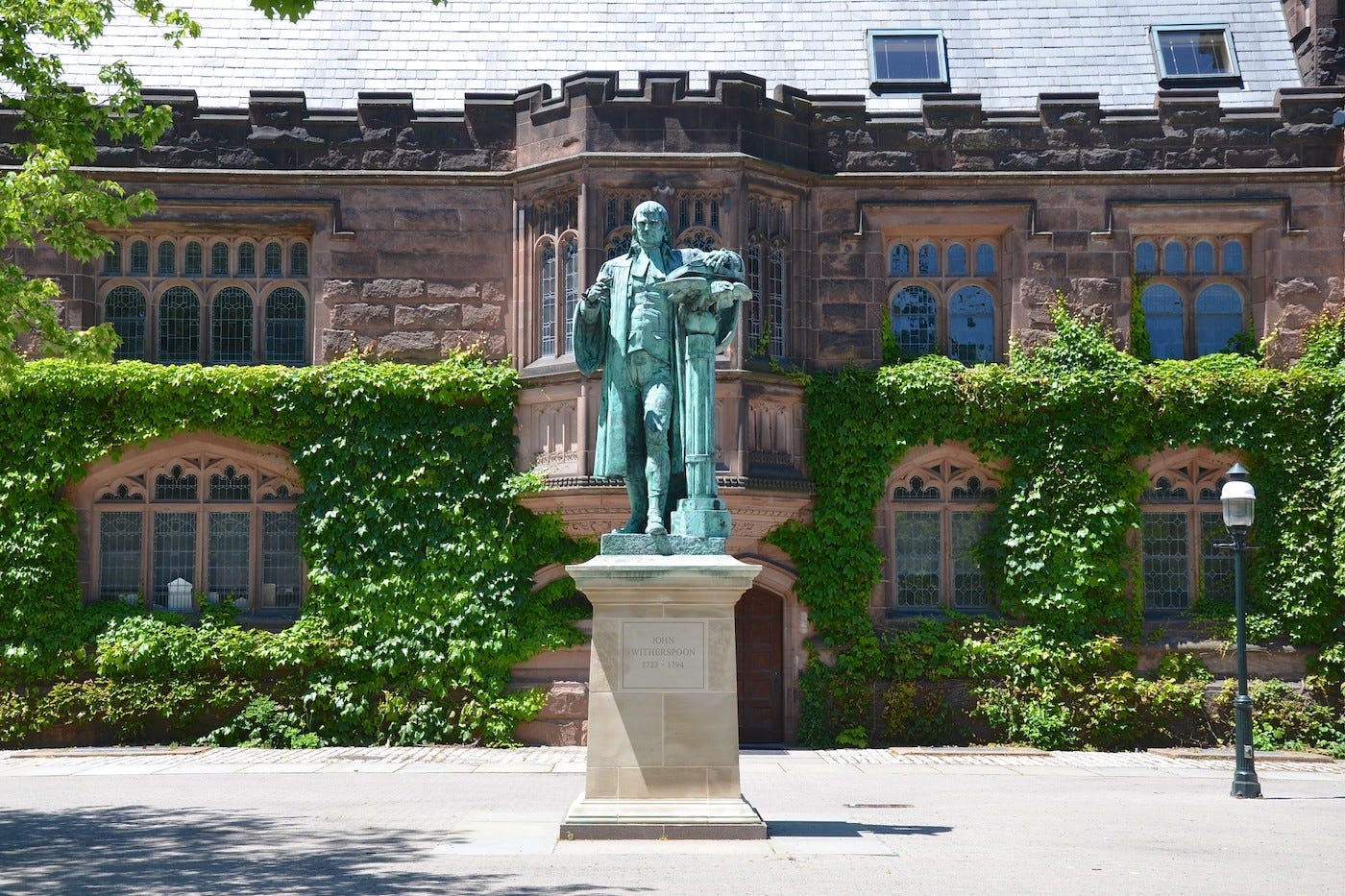Wars Aren’t Won with Peacetime Economies
Casablanca as Plato's Symposium (Srsly!)
Me at Troppo


The first I saw or heard of Casablanca was at the beginning (and end) of Woody Allen’s “Play it again Sam”. I saw the film many years later. I loved it, but mainly because it’s such classic (Hollywood) movie making. The plot just rumbles along brilliantly with not a scene out or word of place. But that’s also true of “The Sound of Music”. It’s a great achievement just doing that, considering how rare it is.
But I’ve watched it many times since. If I’m ever on an international trip and it’s on the menu, I often make the 90 odd minutes necessary to watch it. I then love it all over again for how well-crafted it is. I just can’t believe it, given that its production was a shambles by all accounts. Ingrid Bergman watched it many years later and was surprised at how good it was.
But it’s so much more than a well crafted and exciting, involving human story. I took both my kids to it as a special right of passage when they turned 15 (nothing special about the age). In any event here are some of the reasons I thought it was worthy of such treatment — I haven’t given any other film or anything much that kind of treatment.
First I love it so much, so that gives them plenty to ponder as we all get older and then I disappear, enveloped by the great silence.
Second it shows a world before gender roles got politicised in the way they were in the late 60s. It’s fundamental to the ideas of my generation to know — or sense — a time before gender was politicised. (Obviously I’m aware of the larger point that gender is always political, so perhaps I need slightly different language to describe this, but I won’t worry about that for now — we both know what I mean.) …
Wonderful story from my friend Joe Trippi


Wars Aren’t Won with Peacetime Economies
I’ve just been reading Keynes’ “How to pay for the war” so can’t help noticing how mild the steps we need to take are. But when war comes knocking it’s no time to be wasting money on profiteering. The UK introduced a 60 percent tax on profits deemed ‘excessive’ — that is on the margin above which they exceeded what would have been expected in peacetime. Keynes proposed that the total rate of profits and excess profits tax be 85 percent, though the UK government increased it to 100 percent in 1942 which seems a bit silly. Anyway, as Joe Stiglitz is pointing out, we should tax the profiteering from energy price spikes.
No country has ever prevailed in a serious war by leaving markets alone. Markets simply move too slowly for the kind of major structural changes that are required. That’s why the United States has the Defense Production Act, which was enacted in 1950 and invoked recently in the “war” against COVID-19, and again to address a critical shortage of baby formula.
Wars inevitably cause shortages and generate windfall gains for some at the expense of others. Historically, war profiteers have typically been executed. But today, they include many energy producers and traders who, rather than being marched to the gallows, should be subjected to a windfall profits tax. … [T]axing windfall profits and using the proceeds to finance the necessary war spending and support for those hurt by high prices is not anti-business; it is responsible wartime governance, which is necessary to maintain popular support for the war effort. Such temporary taxes hurt neither investment nor employment, and there is nothing unjust about taxing exceptional gains that companies did nothing to deserve.
Even more comprehensive measures are needed in Europe, where today’s electricity market was not designed to deal with wartime conditions. Instead, it follows the principle of marginal-cost pricing. That means the electricity price reflects the highest-cost source of production needed to meet current demand. As gas prices have soared, marginal costs have risen far above average costs. The cost of renewable energy has, for instance, changed little. …
Neoliberalism, based on simplistic ideas about how markets should operate that fail to comprehend how they actually operate, didn’t work even in peacetime. It must not be allowed to stop us from winning this war.
Wonderful tweet thread touring Indian architecture



The reasons for Brink Lindsay’s pessimism
Optimizing public policy for dynamism and inclusiveness is an enormous undertaking that will require a whole herd of powerful oxen to be gored. To accomplish what needs doing will mean overcoming tenacious resistance from the current beneficiaries of the status quo — the rich and well-off, all the insider interests that have captured one piece or another of the policymaking machinery, government bureaucracies trapped in the amber of standard operating procedure, and all the far-flung members of the “vetocracy” who are empowered under current law to throw sand in the gears of any changes they consider threatening. All of which will require the gathering and mobilization of massive countervailing power — but where will it come from? Given contemporary conditions and their heavy tilt toward economic exclusion and stagnation, what are the constituencies for capitalism’s revitalization and how will they come together to force change?
Beyond the dwindling political resources for reform lies an even more fundamental difficulty. Reforming capitalism to rise to the challenge of the permanent problem would require a massive project of concerted problem-solving, but changing laws to solve real-world problems is no longer the primary focus of politics in the rich democracies. Politics today has elevated the performative over the practical: eschewing the “slow boring of hard boards” as too slow, boring, and hard, it embraces spectacle and self-expression as ends in themselves.
The shift to “identity politics,” in the full sense of that term, thus goes beyond a reorientation of political divisions from economic to demographic cleavages. As the larger culture has shifted from materialism, or the quest for tangible gains in the real world, to self-expression, political conflict likewise has moved away from a focus on the tangible actions taken by government and instead concentrates more on disputes over the relative status of clashing political identities. The demographic groupings arrayed on the left and right all have legitimate grievances with how government currently operates, and there are policy changes that could address those grievances and deliver concrete benefits. But seeking substantive redress is not where the real action in politics is these days. Rather, what truly motivates and energizes are symbolic clashes that raise the status of one’s own chosen political identity — and, more importantly, lower the status of one’s opponents.


Tanna: on SBS on demand
Jeff Sachs: often wrong, never in doubt
Jeff Sachs is a man with a plan. A plan for many things. He was an architect of shock therapy in the liberation of post-Soviet economies and has a plan to end global poverty which looks quite like the failed big pushes of earlier decades. Anyway, I do like his emphasis on great powers focusing on solving common problems — of which there are many.
And maybe we’ll rue the day his advice wasn’t taken on the Ukraine war and gave Russia what it wants — who knows? Certainly not me. But I’m hoping the Ukrainians continue to succeed in resisting Russian aggression.


Damnatio Memoriae at Princeton
I tweeted my appreciation for this piece on the proposed removal of a recently erected statue of John Witherspoon, founding father of Princeton. I did so after reading it on my feed reader, not realising that Public Discourse, where it was published is “The journal of the Witherspoon Institute”. Anyway, with that caveat, I recommend it.
We Americans, like the Romans before us, can be hard on our heroes. Perhaps that is a healthy thing. Plutarch himself wrote that “ingratitude towards their great men is the mark of strong peoples.” Those ancient Romans practiced damnatio memoriae (condemnation of memory) against contemporary public officials who fell out of favor. It was their own version of cancel culture. The especially wicked, like Nero—who lit his garden parties with human torches, and perhaps fiddled while Rome burned—were condemned during their lifetimes, and their statues defaced or decapitated. …
In his native Scotland, Witherspoon baptized a captured runaway slave the day before he was sent to trial, christened him “James Montgomery Shedden” (after his son James, and his wife’s maiden name Montgomery), and furnished him with a signed certificate intended to help with his defense. In America, where conditions were markedly different, Witherspoon taught and worked for gradual abolition. In his Lectures on Moral Philosophy, Witherspoon stressed that “it is very doubtful whether any original cause of servitude can be defended, but legal punishment for the commission of crimes,” thus ruling out the African slave trade. However—and today’s detractors make much of this—he did “not think there lies any necessity on those who found men in a state of slavery, to make them free to their own [i.e. the slaves’] ruin.”
Beginning in 1774 Witherspoon admitted two free blacks, John Quamine and Bristol Yamma, to the college, where he privately tutored them; later he instructed Native American students of various tribes, and another free black ministerial candidate. As a member of the Second Continental Congress Witherspoon took a vigorous part in debates, including arguing down the conservative faction that wanted to delay the Declaration of Independence, which of course contained the fateful self-evident truth that “all men are created equal.” … Yet by 1780, according to tax records, he owned one slave; by 1784 he had acquired a second.
Though he did not live to see it passed, Witherspoon had prepared the ground for emancipation in New Jersey nearly a decade and a half earlier. In a similar abolitionist vein, Witherspoon had his will revised in 1793. The inventory of his modest estate after his death the next year lists some furniture, china, his library, livestock, and the two slaves valued at a hundred pounds each “until they are 28 years of age”—an indication that they were to be freed if New Jersey did not pass an abolition statute in the meantime. All of this pro-abolition activity put Witherspoon ahead of the curve in New Jersey politics, and his tutoring of Black and Native American students modeled racial integration on the Princeton campus.
Having begun with a Roman historian, it might be fitting to end with an Enlightenment philosopher, given the origins of that petition. Immanuel Kant, who was writing his Critique of Practical Reason while Witherspoon was ratifying the Constitution, gave the quintessential definition of “enlightenment”: sapere aude, “dare to know.” One may hope that enlightened Princetonians are made of stern enough stuff to dare to know the whole truth about their heroes; after all, it doesn’t take much daring to forget. Philosophy students, of all people, ought to know that.














